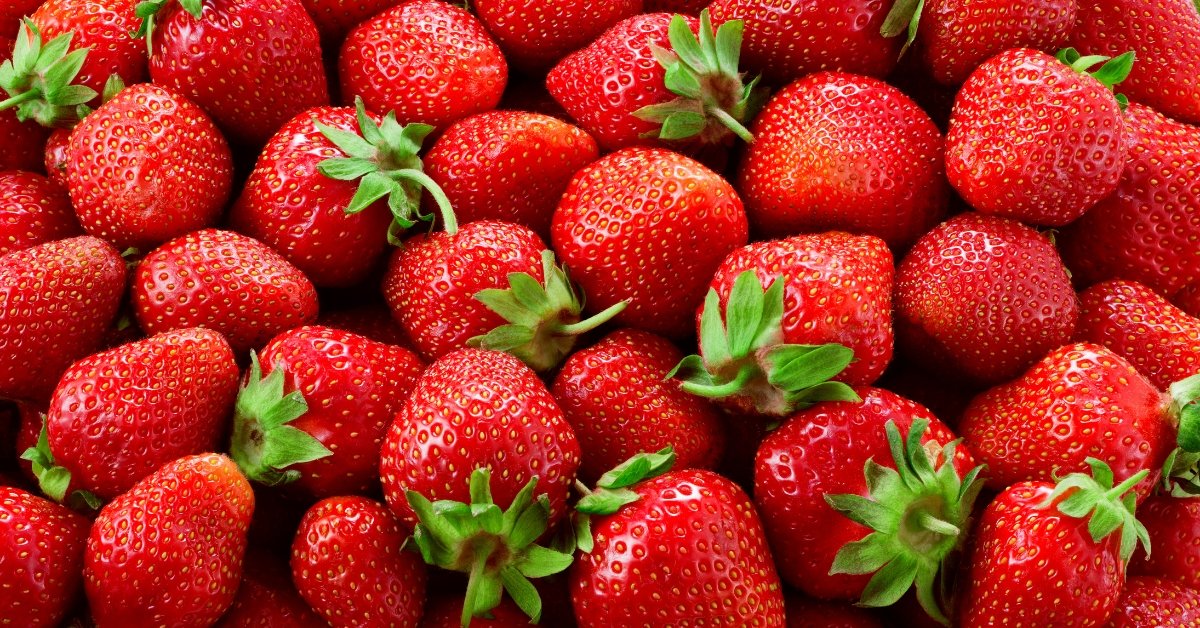Find how fruits can help balance your diet by providing essential nutrients, aiding digestion, and promoting overall health. Learn how to incorporate a variety of fruits into your daily meals for optimal benefits.
Table of Contents
Introduction
A balanced diet is essential for maintaining good health and well-being.
Fruits play a crucial role in achieving this balance by providing a wide range of vitamins, minerals, fibre, and antioxidants.
This blog post will explore how fruits can help balance your diet, their benefits, and practical tips on incorporating them into your daily meals.
Nutritional Benefits of Fruits
Fruits are packed with essential nutrients that contribute to a balanced diet:
- Vitamins and Minerals
- Vitamin C: Found in citrus fruits, strawberries, and kiwi, vitamin C supports the immune system and skin health.
- Potassium: Bananas, oranges, and avocados are rich in potassium, which helps regulate blood pressure and fluid balance.
- Vitamin A: Vitamin A is present in mangoes, papayas, and cantaloupes and is important for vision and immune function.
- Fibre
- Dietary Fiber: Fruits like apples, pears, and berries are high in dietary fibre, which aids digestion, prevents constipation, and helps control blood sugar levels.
- Antioxidants
- Antioxidants: Fruits such as blueberries, cherries, and grapes contain antioxidants that protect cells from damage and reduce inflammation.
- Natural Sugars
- Natural Sugars: Unlike processed sugars, the natural sugars in fruits provide a quick energy source without causing a spike in blood sugar levels.
Health Benefits of Incorporating Fruits into Your Diet
- Weight Management
- Fruits are low in calories and high in fibre, which can help you feel full longer and reduce overall calorie intake.
- Improved Digestion
- The fibre in fruits promotes healthy digestion and regular bowel movements.
- Heart Health
- Fruits like berries, citrus fruits, and apples are linked to improved heart health due to their high levels of antioxidants, fibre, and potassium.
- Enhanced Immune Function
- The vitamins and antioxidants in fruits strengthen the immune system and help the body fight off infections.
- Better Skin Health
- Vitamin C and other antioxidants in fruits promote collagen production, which helps maintain healthy and youthful skin.
How to Incorporate Fruits into Your Daily Diet
- Breakfast Boost
- Smoothies: Blend your favourite fruits with yoghurt or milk for a nutritious and delicious smoothie.
- Toppings: Add sliced fruits like bananas, strawberries, or blueberries to your cereal, oatmeal, or yoghurt.
- Healthy Snacks
- Fruit Salad: For a quick and healthy snack, prepare a fresh fruit salad with a mix of seasonal fruits.
- Whole Fruits: Keep entire fruits like apples, oranges, and bananas on hand for convenient snacking.
- Lunch and Dinner Additions
- Salads: Add fruits like oranges, berries, or mangoes to your salads for flavour and nutrients.
- Side Dishes: Include fruits in side dishes, such as quinoa, pomegranate salad, or grilled pineapple with chicken.
- Desserts
- Fruit-Based Desserts: Opt for fruit-based desserts like baked apples, fruit parfaits, or a simple bowl of mixed berries.
Creative Ways to Enjoy Fruits
- Frozen Treats
- Frozen Fruit Pops: Blend fruits with juice and freeze them in moulds for a refreshing treat.
- Smoothie Bowls: Create thick smoothie bowls with blended fruits and top with nuts, seeds, and more fruit.
- Infused Water
- Fruit-Infused Water: For a flavorful and hydrating drink, add slices of citrus, berries, or melon to your water.
- Fruit Salsas
- Mango Salsa: Combine diced mango, red onion, cilantro, and lime juice for a zesty salsa to serve with fish or chicken.
- Pineapple Salsa: Mix pineapple chunks with bell peppers, jalapeños, and lime juice for a sweet and spicy topping.
- Cooking and Baking
- Grilled Fruits: Grill fruits like peaches, pineapples, and apples for a caramelized, sweet treat.
- Baked Goods: Incorporate fruits into muffins, bread, and cakes for added moisture and flavour.
Tips for Choosing and Storing Fruits
- Seasonal Selection
- Choose seasonal fruits for the best flavour and nutritional value. Seasonal fruits are often fresher and more affordable.
- Proper Storage
- Store fruits properly to maintain their freshness. Refrigerate berries and grapes, while bananas and apples can be kept at room temperature until ripe.
- Organic Options
- Consider buying organic fruits to reduce exposure to pesticides. Organic options, like apples and berries, are especially recommended for fruits you eat with the skin on.
- Wash Thoroughly
- Always wash fruits thoroughly under running water to remove dirt or pesticide residue.
Fun Fact
Did you know? Apples float in water because they are made up of 25% air. This makes them an excellent fruit for bobbing games and a fun addition to fruit-infused water.
Seasonal Fruit Guide
- Winter Fruits
- Citrus Fruits: Oranges, grapefruits, lemons, and limes are in season during the winter months, providing a refreshing and nutrient-rich addition to your diet.
- Pomegranates: These jewel-like fruits are packed with antioxidants and are perfect for adding to salads or enjoying themselves.
- Spring Fruits
- Strawberries: Sweet and juicy strawberries are a spring favourite, perfect for snacking, smoothies, or desserts.
- Pineapples: In spring, enjoy the tropical flavour of pineapples, which can be used in various dishes and beverages.
- Summer Fruits
- Berries: Blueberries, raspberries, blackberries, and more are abundant in summer, providing flavour and nutrition.
- Watermelon: Hydrating and refreshing watermelon is a summer staple that keeps you cool and hydrated.
- Fall Fruits
- Apples: Crisp and sweet apples are versatile and can be used in various recipes, from pies to salads.
- Pears: Juicy and flavorful, pears are perfect for snacking or adding to baked goods and savoury dishes.
Fun and Healthy Fruit Recipes
Tropical Fruit Salad
Ingredients:
- 1 cup pineapple chunks
- 1 mango, diced
- 1 papaya, diced
- 1 kiwi, sliced
- 1/2 cup shredded coconut
- Juice of 1 lime
Instructions:
- Combine pineapple, mango, papaya, and kiwi in a large bowl.
- Sprinkle with shredded coconut.
- Drizzle with lime juice and toss gently to combine.
Berry Parfait
Ingredients:
- 1 cup Greek yogurt
- 1/2 cup granola
- 1/2 cup mixed berries (strawberries, blueberries, raspberries)
- 1 tablespoon honey
Instructions:
- Layer Greek yoghurt, granola, and mixed berries in a glass or bowl.
- Drizzle with honey.
- Repeat layers as desired and enjoy immediately.
Grilled Peaches with Honey and Almonds
Ingredients:
- 4 ripe peaches, halved and pitted
- 2 tablespoons honey
- 1/4 cup sliced almonds
- 1 teaspoon cinnamon
Instructions:
- Preheat the grill to medium-high heat.
- Grill peaches, cut side down, for 3-4 minutes until grill marks appear.
- Remove from the grill and drizzle with honey.
- Sprinkle with sliced almonds and cinnamon.
Interesting Trivia
Did you know? Strawberries are the only fruit with seeds on the outside. Each strawberry has about 200 seeds, making them a unique and nutrient-packed addition to your diet.
Benefits of Eating a Variety of Fruits
- Comprehensive Nutrient Intake
- Different fruits offer various vitamins and minerals, ensuring a more comprehensive nutrient intake. For example, citrus fruits provide vitamin C, while bananas offer potassium.
- Disease Prevention
- Consuming various fruits can help protect against chronic diseases such as heart disease, diabetes, and certain cancers due to their high levels of antioxidants and phytonutrients.
- Digestive Health
- A diverse fruit intake ensures a good mix of soluble and insoluble fibre, promoting healthy digestion and preventing constipation.
- Enhanced Energy Levels
- Fruits’ natural sugars provide a quick and sustained energy boost, making them ideal snacks before or after physical activity.
Incorporating Fruits into Meals for Different Diets
- Vegetarian and Vegan Diets
- Fruits are a staple in vegetarian and vegan diets, providing essential vitamins, minerals, and fibre. Use fruits to create colourful salads, smoothies, and desserts.
- Low-carb and Keto Diets
- While most fruits are high in carbs, berries like strawberries, blueberries, and raspberries are lower in carbs and can be enjoyed in moderation on low-carb and keto diets.
- Paleo Diet
- Fruits are a vital component of the paleo diet, which emphasizes whole, unprocessed foods. Enjoy a variety of fruits as snacks or in meals.
- Gluten-Free Diet
- All fruits are naturally gluten-free, making them a safe and nutritious choice for those with gluten intolerance or celiac disease.
Tips for Getting Kids to Eat More Fruits
- Make It Fun
- Use cookie cutters to create fun shapes with fruits like melons and apples.
- Arrange fruits in colourful patterns or designs on a plate.
- Get Creative with Presentation
- Serve fruits on skewers for a fun and easy-to-eat snack.
- Create fruit kabobs with a mix of their favourite fruits.
- Involve Them in Preparation
- Let kids help wash, peel, and cut fruits. They are more likely to eat something they’ve helped prepare.
- Combine with Favorite Foods
- Add fruits to yoghurt, cereal, or smoothies to make them more appealing.
- Offer fruit dips like yoghurt or nut butter to make eating fruits more fun.
Fun Fact
The world record for the heaviest watermelon is 350.5 pounds, grown by Chris Kent of Sevierville, Tennessee, USA. Watermelons are a refreshing summer treat and are packed with hydration and nutrients.

